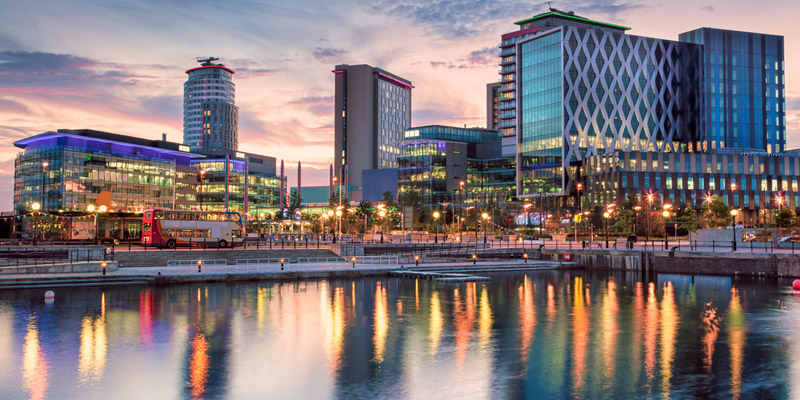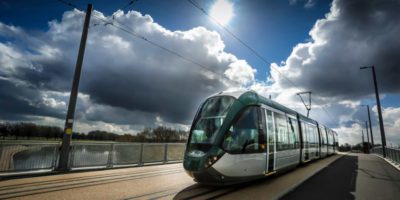Nicola Kane is Transport Strategy Manager at Transport for Greater Manchester (TfGM) and she is a qualified Transport Planning Professional and Chartered Town Planner, spending most of her time thinking about what the future might hold, as her team works to develop a new long-term transport strategy for Greater Manchester, covering the period to 2040. Nicola joined TfGM in 2014 after 15 years of working in consultancy and has wide-ranging experience in transport strategy, policy development and travel behaviour change. She’s worked for a range of public and private sector clients, from regional bodies and local authorities, to house builders and social enterprises.

“…Transport users are male and female, from all different ethnic backgrounds, from diverse socio-economic backgrounds and some have disabilities and specific needs, so we need to have diversity among the people who are planning that system…”
Nicola, please can you tell us a bit about your career to date and what got you interested in working in transport?
I guess I’ve always been quite interested in how places work. I really enjoyed geography when I was at school – I loved learning about new places and how people interact with the environment around them. So I went on to study geography at university and then carried on to a Masters in Urban Planning. While I was there I had some really inspirational lecturers who got me interested in transport and the role that transport plays in people’s lives.
For me, it’s less about how transport systems work and more about how transport supports access to opportunities, how it supports social equity, and how it keeps cities and towns ticking. So after finishing my Masters, I was inspired to go on and work in transport planning, and I’ve been doing that ever since.
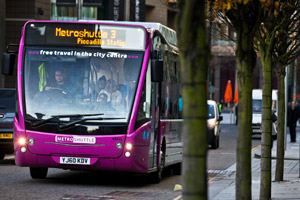
I joined TfGM last year, which was a great time to arrive. There’s loads happening on the transport scene in Greater Manchester at the moment, particularly as we move towards devolution, so it’s a fantastic opportunity!
You’ve recently finished work on the creation of a new vision for the future of transport in Greater Manchester and you’re working towards developing plans to implement the vision at the moment. Please can you tell us about this?
When I joined TfGM, my main remit was to start work on a new transport strategy, renewing our existing plan for local transport. We decided with this strategy that we wanted to think much longer-term than we had done previously, so we decided to look at what we need to do for the next 25 years to allow us to make significant improvements to transport in the city region.
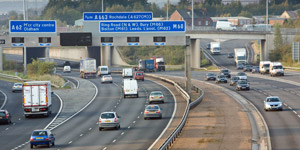
To build consensus with residents, businesses and other stakeholders in the city we ran a public consultation to ask people to feedback on our vision. The feedback we received is invaluable, helping us to shape future plans and create a network which works for the city region.
Now we’re working on a more in-depth strategy to set out some of the detail on how we think we’re going to get there in the next ten years, and some of the bigger infrastructure that we might need to put in looking at the 25 year time horizon. It’s been a brilliant opportunity to consider the sort of things that might influence how people want to travel, where they travel, what sorts of transport they’re going to need.
We’ve been doing a whole range of fascinating work about the future of the economy, society, environment and technology – all huge areas. We’re working with a lot of other policy areas and stakeholders as well to try and develop a collective view of what sort of city region we want. It’s an exciting piece of work to be involved with, and there’s more to come next year. We’ll be bringing out the more detailed strategy in the first half of 2015.
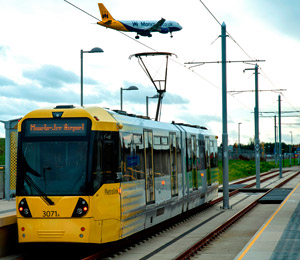
The strategy doesn’t just look at what we need within Greater Manchester – it looks externally as well, exploringhow we’re connected to other cities in the UK. It also goesright down to local neighbourhoods and how we get around in our local areas – how weget to schools and local shops, and how we can reduce some of the impacts of traffic on the places where people live. So it’s very broad in its approach and remit.
How are the Government’s plans for devolution in Manchester going to affect the way transport infrastructure is planned and delivered in the city?
It’s going to have an absolutely huge impact. What it’s all about from a transport perspective is trying to create a more integrated and customer focused network that’s much easier to understand. This makes it much easier for people to use public transport and to walk and cycle.
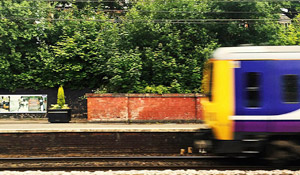
A lot of it is also about how we work better with other policy areas – what’s the relationship between health and transport for example? If we have devolved funding and devolved decision making around those areas we can make much more joined-up decisions about how we deliver on shared objectives. So it’s a great opportunity to think about transport in a much more integrated way, and ensure it’s delivering against a much wider range of objectives for the whole of the city region.
How is use of technology and data helping city infrastructure get ‘smarter’?
Technology is a really tricky area when you’re looking longer term because things change so quickly, so we try to think about how technology can help us deliver the transport aspirations that we’ve set out in the vision.
So there’s a range of things we’re considering – for example around the customer experience – how can technology help us deliver a more integrated public transport network if we give people much better information on their travel choices before they even leave the house, and when they’re on their journey they get real time information on their phones, or devices, or watches, or whatever it might be in the future.

We’re trying to be focused in how we look at technology and innovation so that we’re maximising the opportunities for Greater Manchester and making sure innovative approaches are delivering the outcomes we want for our transport network – and most importantly for the travellers that use it.
What is the best advice you received as a woman working in a traditionally male dominated area like transport?
There’s things I’ve picked up along the way. One is about not being intimidated. You can have some men who do a lot of posturing and talking – I’ve learnt not to be daunted by that. It’s important to believe that you can add to the debate.
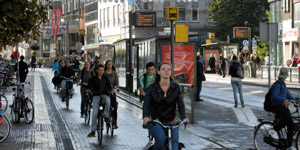
I’ve realised that the way I come at things is perhaps different to some of the men that I work with who may be interested in transport systems and networks, whereas I’m interested in what that delivers for people. I think that gives me a slightly different viewpoint.
What is coming up next for you?
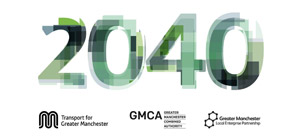
So short term, it’s going to be very busy! Then longer term we’re focusing on making sure the devolution agenda goes to plan and that we’ve got a clear strategy in place for how we’re going to deliver that, and not lose sight of what we’re trying to achieve long term.
https://twitter.com/OfficialTfGM
https://www.linkedin.com/company/transport-for-greater-manchester-formerly-gmpte-
https://uk.linkedin.com/in/nicola-kane-b9397a13

